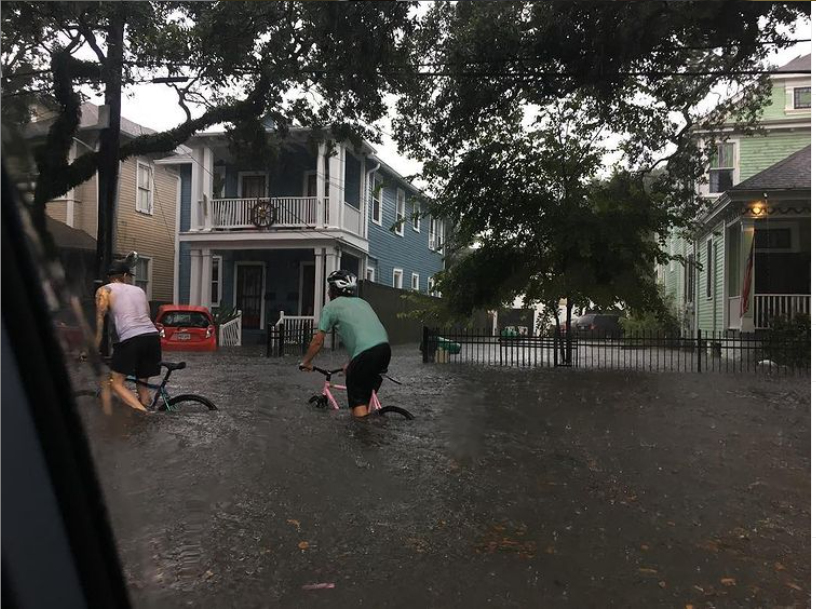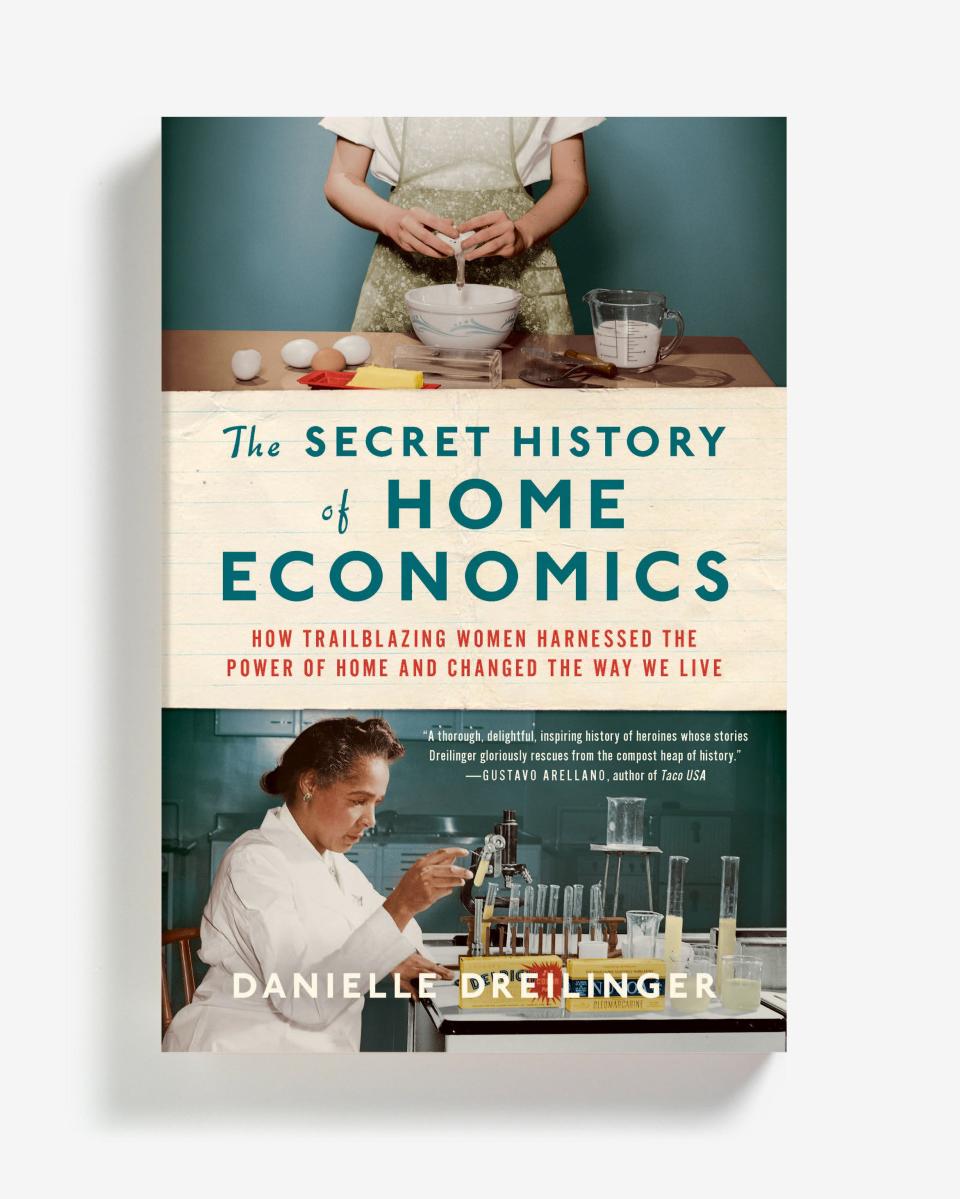Storytelling reporter: Everybody has a story. Here's mine

Everybody has a story
A storytelling reporter. What’s that? To explain my role on the North Carolina Gannett/USA Today Network team, I thought I’d tell a story about how I came here.
Four years ago, I was driving home from the Uptown New Orleans Walmart, $72 of packing supplies in my hatchback, when it started to pour. I shrugged and flipped on the wipers. Just another August afternoon in that steamy Gulf Coast city. The city has a pump drainage system — the best in the world, they said — and though a couple inches of rain often sat on the streets for an hour, it always receded quickly.
Except that day, it didn’t. It blocked my route down Tulane Avenue. I turned to Banks Street and kept going. Turned back. Drove up onto the median in desperation. And watched the water rise.
It crept up the curb and then it shone in the footwells of my car. People bicycled by, water slurping at their wheels. Garbage cans floated, trailing sickening sludge. Finally I changed my shoes for the flip-flops in my gym bag, bailed out of the back of my hatchback and waded thigh-deep across the moat-road to wait on a welcoming stranger’s porch. (Of course they were friends of friends, because New Orleans.)
Hours passed. The rain stopped but the water did not subside. At last, my boyfriend came to get me in his kayak. Paddling over, he gave a man a lift from one porch to another — “Canoeber!” the rider exclaimed. Kayaking to safety in the too-quiet night, I looked down and saw the tops of cars underwater, pale, like dead fish. Finally the boat scraped the “high ground” of a major cross-street and we disembarked. I took a very hot shower.

I was lucky. The flood did not reach the floor of my raised house. My friend’s shop vac sucked the water out of my car; knifing out the carpet (did you know that the floor of your car has plastic-bagged Styrofoam in recesses for insulation? Recesses that collect water? I didn’t), I thought, “Well, I won’t ever be able to sell this car now.”
As I drove to Michigan one week later for a nine-month journalism fellowship, DampRid in the hatch, I knew that someday I would leave New Orleans for good. Climate change meant ever more devastating rainstorms and hurricanes. Rising seas were eating the boot-shaped coastline into a holey sock. I simply couldn’t count on New Orleans to exist in my old age. Where would I go? Someplace less prone to devastation, still affordable, diverse, livable, friendly, with plenty of stories to tell.
This summer, I moved to Durham, driving in the same hatchback. Three weeks after my New Orleans house sold, Hurricane Ida hit.
More about flooding: Living shorelines: Along the N.C. coast, preparing for rising waters with natural remedies
As I see it, a storytelling reporter puts a human face on issues. This story is about a dramatic incident and a key decision in my life. But it’s also about the climate crisis. It’s about population shifts and what drives them. About who can afford to leave.
I am part of the changing North Carolina, one particle in a wave. North Carolina’s growth over the past decade outpaced the national average, according to the 2020 Census. And Durham County is even more popular, growing by one fifth, Carolina Demography reports.
I am part of the changing North Carolina. I bought an 80-year-old house for close to four times what the seller paid in 2012, participating in those skyrocketing housing costs. (It’s still so much cheaper than the coasts.)
I am part of the changing North Carolina. And whether you’re a newcomer, a lifer or somewhere in between, you are, too.
As we at the USA Today Network cover the many issues, policies, politics and challenges that affect this state – COVID-19, redistricting, the economy, health care, schools – we need your stories to illustrate what’s at stake. Stories about history and change, people who have been left out and the way we live now.

Tell us about your great-uncle the underappreciated hero who worked his whole life, and what he worked for. Your godchild’s quixotic quest. How racism or job loss hit you hard, and how you hit back. How you’ve felt left behind, and what you’ve done about it. How you suffered and triumphed — and sometimes, suffered again. If you’re new, I want to hear why and how you came here. If you’re a lifer, I want to hear about your transformed neighborhood, and those childhood traditions that if you forget to share no one will ever know. The shameful history, the challenging present, the funny stuff. Some of you know exactly what it’s like to sit and watch the water rise, that feeling of helpless panic when you realize that there is absolutely nothing you can do to stop it.
More: Welcome to Pollocksville, three years after Hurricane Florence
I believe that when we read such stories, about the people behind the issues, we understand each other better. Stories help us [relate to/feel compassion for] someone as far away and fictional as a blond boy on dusty Tatooine — or even more improbable, someone two towns over who voted for a politician we despise.

I want to hear how these big problems affect you, and how you affect them. Who’s trying to change the world for the better? Who’s barely holding on? What are people fighting over in your neck of the woods? What are they really fighting over? The next time you shrug and say, “Oh, I can’t complain,” remember you can always complain to me.
Because everyone has a story.
What’s yours?
Danielle Dreilinger is a North Carolina storytelling reporter and author of the book The Secret History of Home Economics. Contact her at 919/236-3141 or ddreilinger@gannett.com, or follow her on Twitter @djdreilinger.
This article originally appeared on Wilmington StarNews: Journalist Danielle Dreilinger tells her story and asks: What's yours?

